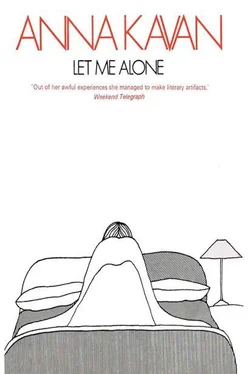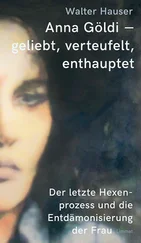At last Matthew returned, accompanied by a fairish, rather heavily-built, vaguely Teutonic type of man, wearing khaki and a battered pith helmet. This was Jonsen. He was introduced to Anna.
‘I’m sorry I wasn’t in time to meet your train,’ he said. ‘I thought I had allowed ample time, but my watch must be slow.’
He seemed to look at Anna with astonishment. She could feel that he thought her an extraordinary person to come to Naunggyi. And she herself felt distinctly out of the picture in her smart dress of yellow shantung. But she climbed into the back of the old Ford car, and sat on the dirty cushion with her dressing-bag at her side. Matthew got up in front, beside Jonsen, who was at the wheel. There they sat in front of her, the two men, turning the backs of their necks, and the bulky breadth of their shoulders towards her, and taking no more notice of her than of the man in the moon.
The sun was slanting down to the tops of the hills, gold auras of dust encircled the moving carts as the rays caught them. The Ford ran busily over the narrow road, which was banked up several feet above the marshy level. Along the road, brown men in skirts, women in skirts with short white bodices, walked in the pale dust, carrying baskets or bundles, or leading children by the hand. Most of the women had flowers tucked behind their ears, something like the pictures of Carmen, with their sleek black hair. And they all moved along with an easy, childish grace, swaying a little from the hips, whilst their bare feet, or their coloured heelless slippers, ruffled the soft dust.
On went the car, over the marshy plain; the station was left well behind. Occasionally they had to pull out to the very edge of the road, hanging almost over the embankment, while neat, mouse-grey bullocks tripped past, drawing a two-wheeled cart. They were going towards the hills. Looking ahead Anna could see the blue ridge of hills about ten miles away, and nearer, a darkness of large trees, with buildings showing between, where the village was.
She looked at the two heads, bobbing so foolishly before her in their clumsy hats. And the two necks: Matthew’s, hard and leathery-smooth and somewhat skinny, but with a tough, almost rubber-like turgidity, like the stem of some forceful plant; and Jonsen’s, flaccid and red and deeply creased and rather unappetising. She didn’t like the look of them at all, those necks. But somehow they fascinated her even more than the novel landscape.
A few houses came in sight. This was the place towards which they had been travelling for more than a month. They had arrived. The Ford rattled in between two wooden gate-posts, and up to a dark wooden house, the ultimate goal of the journey. Servants appeared and took the hand-luggage. Anna got out. There she stood, on the hot, caked, dusty earth in front of the house. The building rose on a little hillock. A bare, brownish stretch of ground went down to the road, with a solitary palm, very tall and dilapidated, with an air of having run to seed, in the middle. Enormous trees, neither quite in nor quite out of leaf, grew on the left, with some flowering bushes. On the right, where the ground fell away, was the edge of the marsh. And there were blue little flowers, very vivid. The sun had just set, the sky was empty.
Matthew was talking to Jonsen at the foot of the steps.
‘You will leave us all your furniture, then,’ he said. ‘We will take on the house just as we find it.’ It seemed to be the end of a discussion.
They went up the steps and into a bare hall with a flight of bare wooden stairs rising. On each side, left and right, was a tattered bead curtain indicating a doorway. There were no doors except the outer door through which they had just entered. Jonsen led the way into the left-hand room. This was the drawing-room. It was a fair-sized apartment with a stone floor: white walls with a kind of shelf of brown wood running round, and wooden-shuttered windows, rather small, and glassless: a little cheap cane furniture: a huge punkah made of some brownish fibre hanging motionless in the middle of everything. It was rather like a room in some poverty-stricken hospital, doleful and bare, without carpets or curtains or ornaments of any kind.
‘Would you like some tea?’ said Jonsen, doubtfully, to Anna.
‘Yes please,’ said she, rather dazed. It was all unreal and astonishing to her. Outside the window she could see the gleaming, darkening sky. And a cluster of strange long leaves, long and pointed, like a handful of drooping swords, brilliant lemon colour. She felt she was lost, utterly lost. She had travelled away from the normal world, the world of Oxford and Blue Hills, and come to this other strange, strange place, this world of unreality.
Matthew stood beside Anna, smiling. He had taken off his hat and seemed quite at home already.
‘What do you think of it?’ he asked her.
Which, in her present state of astonished bewilderment, was the last thing she could have told him. But he did not wait for an answer. He smiled complacently.
‘It’s quite a good bungalow,’ he said.
Anna examined the room. There was a cane lounge in front of the window, jutting stiffly into the room. Near the door was a wooden table with scattered papers, an ink-bottle, pipes and a tin of tobacco. Round the walls ran the narrow shelf upon which various small articles — tools, cartridges, magazines — had been allowed to accumulate. There were also two cane arm-chairs, a small cane table, two wooden chairs, and an ugly china vase pushed into a corner. And there was the punkah.
A servant came in with a tray.
‘I’m afraid you will find my arrangements rather primitive,’ said Jonsen. ‘The crockery has nearly all been broken. I have lived here alone for so long.’
He set one of the cane chairs for Anna. It looked dusty and the seat was broken, there were sharp ends of cane sticking up. She was afraid of spoiling her dress. But she sat down and poured herself a cup of tea from the hideous enamel teapot. Her cup was chipped and ugly. The men sat facing her with their whiskies and sodas. They would not drink tea. A tin of biscuits was on the table. Anna took one, but it tasted musty and rather unpleasant. There was nothing else to eat. Matthew seemed quite at home.
‘It’s good to be back,’ he said.
She looked at him with grey, astonished, doubtful eyes. She did not know what to think.
‘Don’t you like it?’ he asked, smiling.
‘It seems very extraordinary,’ she said. She really could not think of any other comment.
Jonsen continued to look her up and down with surreptitious amazement. He had small, twinkling eyes in a puffy, reddish face, and was a man of about fifty — but with a simple, almost childish expression. The good-humoured simplicity seemed a little deceptive, though. There was a suspicion of malice somewhere about him.
‘I expect you will find it strange at first,’ he said to Anna. ‘When you get used to the life you will like it.’
But she felt sure he was thinking she would not like it, and was taking a malicious pleasure in the prospect of her discomfiture.
Matthew began to ask questions about the work. The two men drew their chairs to the table and embarked on a technical conversation, making notes on the backs of crumpled papers. Anna was left alone with the dregs of her tea. She sat motionless, thoughtless, feeling dazed. The room grew darker.
Presently a servant brought in a lamp. It was an old-fashioned oil-lamp with an ugly, white, mushroom-shaped shade. He placed it on the table beside Matthew’s arm. The boring drone of conversation went on. Crowds of insects began to circle round the lamp, the table was soon strewn with an irregular circle of singed corpses. No one took any notice of Anna.
Читать дальше












